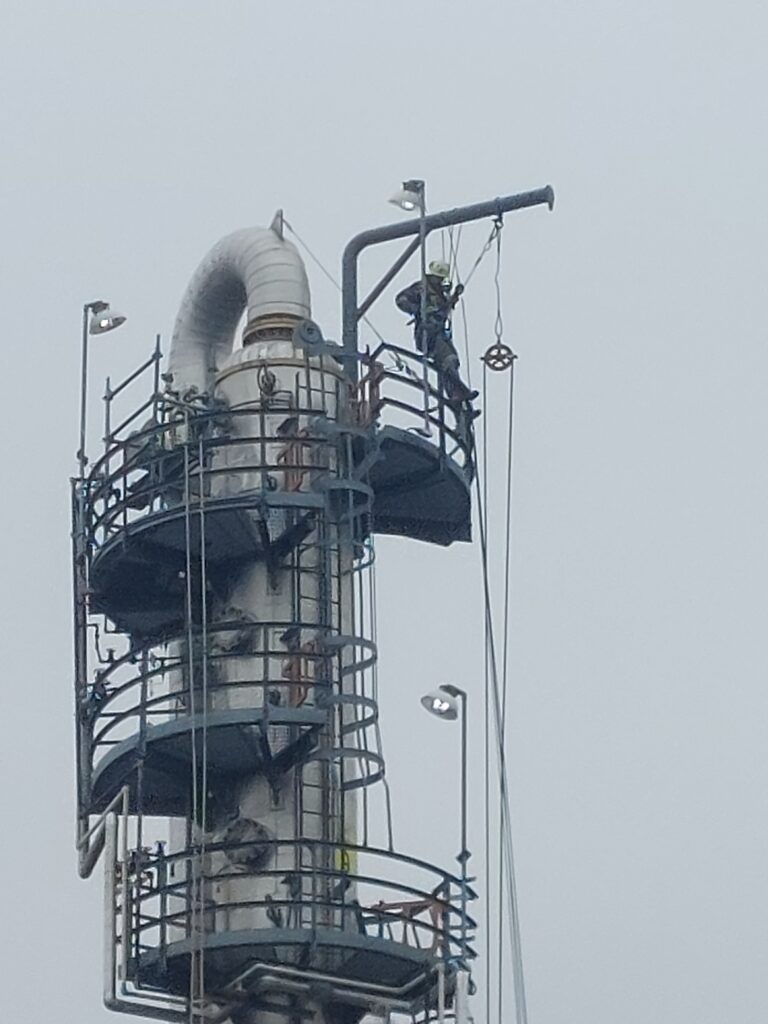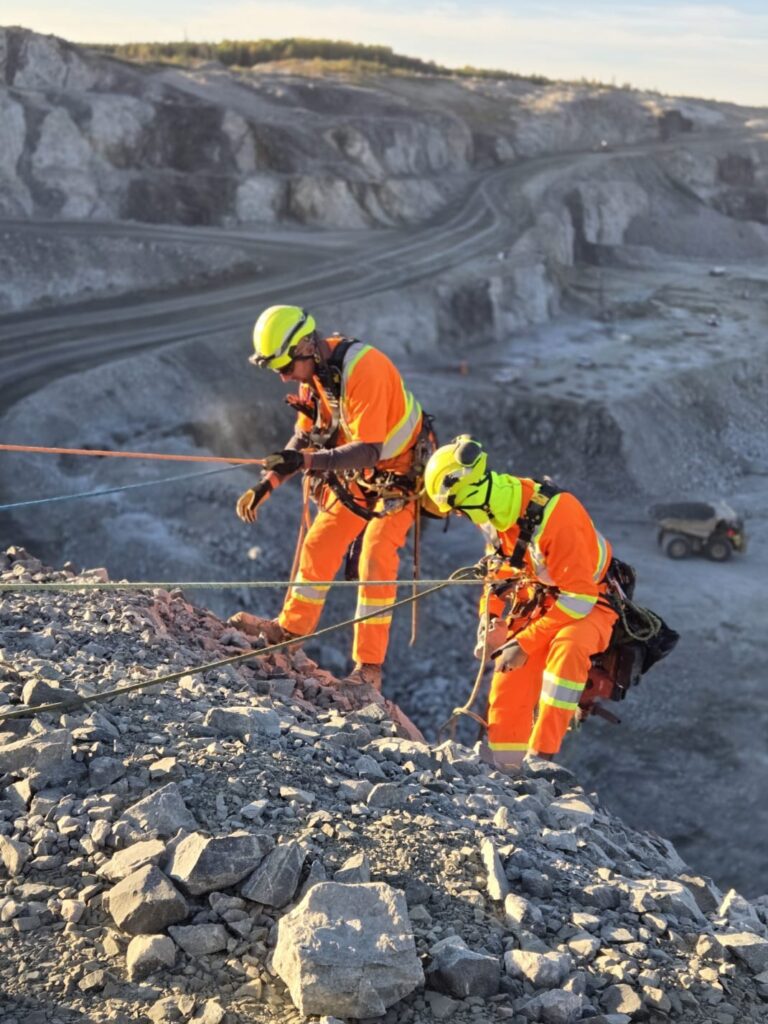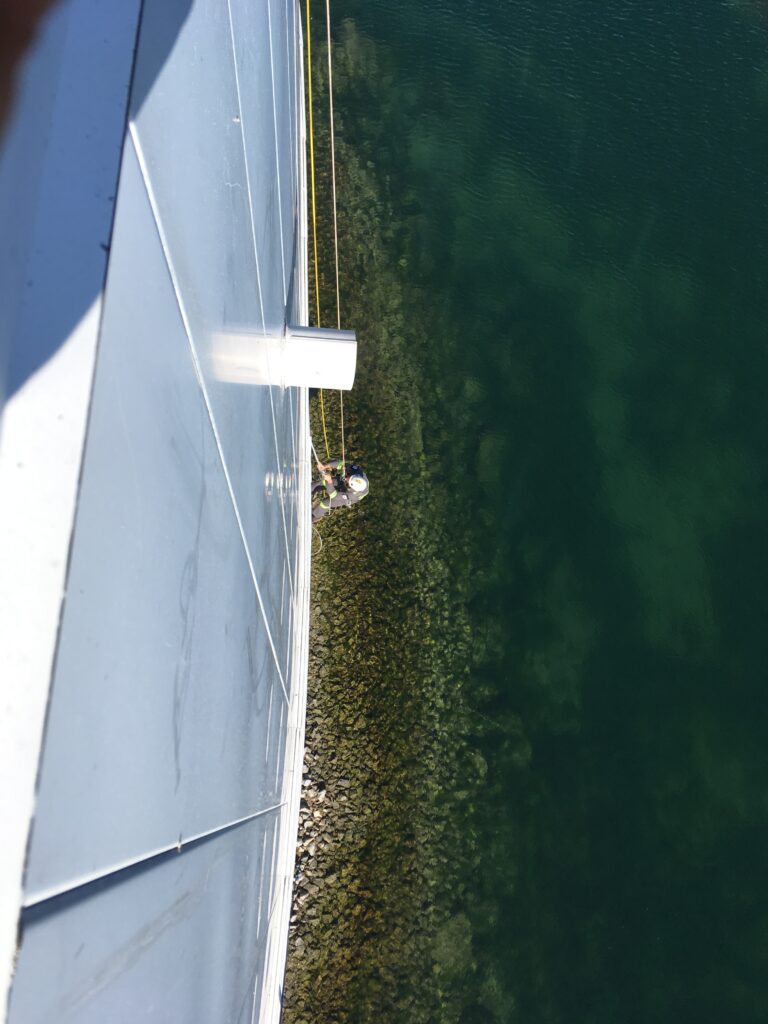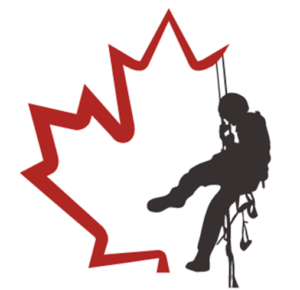TUNDRA ROPE ACCESS – FREQUENTLY ASKED QUESTIONS (FAQs)
This page has some of the questions that we find we are frequently being asked. We’ll update it when we get more regular questions.
How can I contact you?
Our contact details can be found at the top of this page, or by following the top menu links. We ensure that phone contact is available during office hours between 0800 and 1700 on weekdays, but we are frequently available outside of these hours on a duty system for urgent contact needs too.
Subject to agreement and sufficient notice our teams are available for work on a 24/7 basis, including shutdown support at weekends and holiday periods.
What is rope access?
According to the Society of Professional Rope Access Technicians (SPRAT), rope access “refers to a set of techniques where ropes and specialized hardware are used as the primary means of providing access and support to workers.”
Rope access involves workers using ropes and recognised techniques and safety measures to complete tasks and activities above and potentially below ground. Often this will be when traditional worker access methods (like ladders, boom lifts and scaffolding) are not feasible or less efficient.
Where do you provide services?
The majority of our work is around the Greater Toronto Area, but we support tasks throughout Ontario, sometimes in remote areas, such as northern mine sites, or as part of maintenance of public infrastructure and services. We have also occasionally worked internationally too.
What kind of customers do you work with?
Our client base is as diverse as Ontario’s economy. We work with private and public organisations including those involved with infrastructure, energy, construction, building maintenance, engineering, water supply, communications, the film industry, and lots of different types of manufacturers.
Often there is some kind of height clearly connected with the work assignment such as a bridge, span, tower, roof, pit or shaft, but this isn’t always the case. Sometimes we support tasks that involve confined space and access challenges at the same time.
I have a work task where I think rope access could be the solution but I'm not sure?
Great! Rope access is a still a relatively new thing and new applications are being discovered all the time: things that can be done on rope that couldn’t be done before, or where rope access is a better / more efficient / safer method that what was being done before. This is the case in even in established industries.
We are very happy to have these conversations and help potential customer’s ascertain whether rope access is an appropriate method.
Please do get in touch with us if this question describes your situation.
Do you offer rope access training to individuals?
We do not currently offer rope access training to individuals.
We will consider rope access training requests from organisations.
Sometimes we are contact by organisations that would like to get their staff rope access trained for a single specific task or project. In these cases it can often be more efficient and safer to arrange a certified rope access team to do the work that is needed or help a technical specialist reach the area where work is needed. We would be happy to discuss situations like this directly with Program and Project Managers who think they are in this position.
I am a qualified rope access technician, how can I work with you?
Like most businesses that employ rope access technicians, we have a full time workforce which we supplement with part time workers according to project need. Often our full time employees are people who first started with us in a part time capacity.
If you are a SPRAT or IRATA Level 3 with a right to work in Canada and interested in being added to our roster, we would be happy to hear from you. If you are a Level 1 or 2 we can review your CV for future needs. If you are already based in the Greater Toronto Area this would be an advantage.
If you do not have the right to work in Canada we are not presently in a position to support your application for a work permit.
I am hoping to start a career as a rope access technician, can you offer me advice?
We are unable to offer individual advice. Everyone’s specific circumstances are going to be different and we just don’t have the capacity to address these inquiries with the respect that they deserve.
Often people come to rope access through an existing professional or personal interest that involves rope work: rock climbers, arborists, communications workers, emergency services personnel, military veterans, or tradespeople that are required to work at height. Whatever the motivation, the first step to becoming a Rope Access Technician is always going to be getting a Level 1 qualification from SPRAT or IRATA.
What is the relationship between Tundra Rope Access and Tundra Rescue?
Tundra Rescue and Tundra Rope Access are brands of Tundra International Inc., an Ontario-based company which was formed in 2011.
We have been performing rope access and high angle work since 2011 under the Tundra Rescue brand – which primarily deals with confined space safety – however as of 2024 we recognized that some potential rope access customers would be better supported by a different brand.
Tundra Rescue and Tundra Rope Access share a management team and many of our technicians work across both brands. One of advantage of this shared competency is our ability to support project where rope access and confined space and/or atmospheric hazards may be present.



